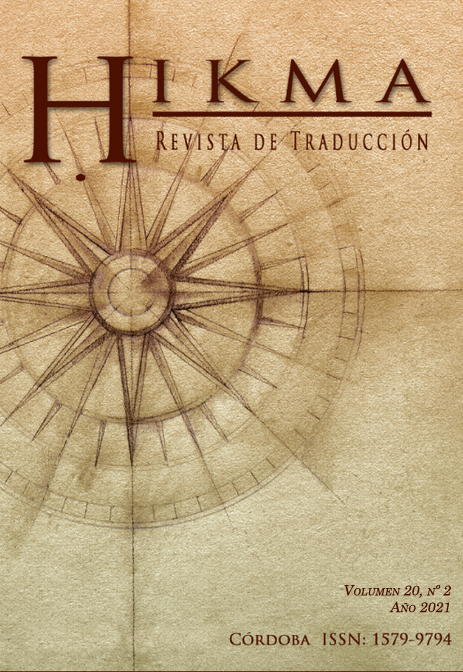The Historical references of the Soviet Era and their treatment in translation: The case of Svetlana Alexievich
Main Article Content
Abstract
In this paper, we analyse how several translators into European languages deal with the translation of historical references of the Soviet era, which appear in “Vremja sekond hènd” (“Secondhand Time. The Last of the Soviets. An Oral History”), a literary work by Svetlana Alexievich. Because of the gap between Russian and Occidental cultures, numerous references to the past of the USSR are obscure to Western readers. Due to their frequent occurrence in the object of the study, translators are required to decide which translation procedures they can use in order to convey the meaning of each kind of such references, in which cases they have to preserve them and to what extent they need to approach the text to the reader. In view of detecting possible challenges in translating Soviet history elements and illustrating the strategies applied, we study the translation of the original Russian text into four languages: French, Portuguese, Spanish and English. After classifying the historical references and contrasting their treatment in the corpus, we can conclude that the election of translation procedures varies not only according to the reference in question and the context in which it appears, but also according to the genre to which the translator and the publisher attribute the literary work.
Downloads
Article Details

This work is licensed under a Creative Commons Attribution-NonCommercial-ShareAlike 4.0 International License.
Authors who publish with this journal agree to the following terms:
1. Authors retain copyright and grant the journal right of first publication with the work simultaneously licensed under a Creative Commons Attribution License that allows others to share the work with an acknowledgement of the work's authorship and initial publication in this journal.
2. Authors are able to enter into separate, additional contractual arrangements for the non-exclusive distribution of the journal's published version of the work (e.g., post it to an institutional repository or publish it in a book), with an acknowledgement of its initial publication in this journal.
3. Authors are permitted and encouraged to post their work online (e.g., in institutional repositories or on their website) prior to and during the submission process, as it can lead to productive exchanges, as well as earlier and greater citation of published work (See The Effect of Open Access).

